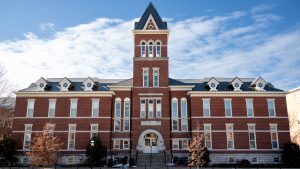
Feb. 9, 2026
Richey wins ISE undergraduate research competition
The Missouri Method was on display as engineering students shared their research projects with alumni and faculty at the annual event.
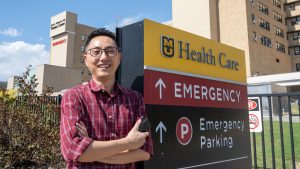
Nov. 17, 2025
Mizzou Engineering researcher discovers pandemic’s impact on ICU patient care
A careful examination of nursing practices opens up opportunities to improve more lives through data-informed systems thinking.
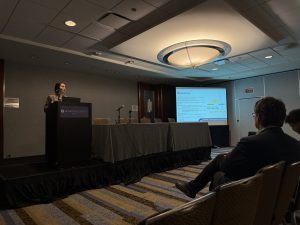
Nov. 12, 2025
PhD candidate earns Best Student Paper Award for physiological measurement study
Sara Mostowfi and collaborators propose that pupil dilation can reveal metacognitive processes in AR-based learning environments.
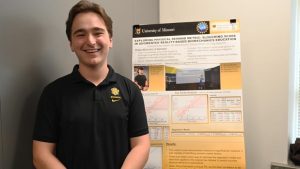
July 24, 2025
Undergraduate researcher wins international acclaim
Industrial Engineering senior garners top paper award for research on physical demand in AR users.

July 17, 2025
Master’s student wins app competition at IISE conference
RJ Morrison’s app integrates AI to help users build, interact with and understand complex simulations without advanced technical expertise.
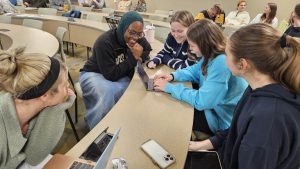
April 16, 2025
Hands-on learning with emerging technology
From augmented reality to robots, Mizzou Industrial Engineering students learn with leading edge tools.
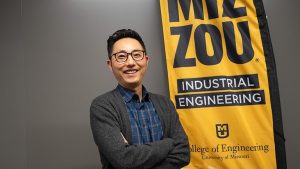
Jan. 28, 2025
Mizzou researchers use posture to measure physical demand in augmented reality users
Interdisciplinary discovery has broad implications for workplace policies and safety regulations.
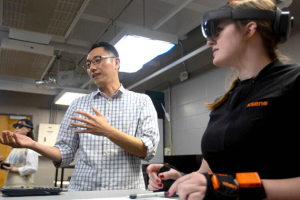
Jan. 12, 2024
Study finds correlation between metacognition and effectiveness of virtual instructors in remote classes
Augmented and virtual reality are changing the way universities can offer remote and online courses. These technologies allow for course materials to be presented to students in a more engaging and interactive way. However, right now, there’s a disconnect between the “wow” factor and what students actually learn using these technologies.
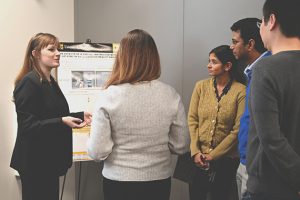
Dec. 5, 2023
Easley takes top spot at industrial engineering research competition
Senior Madeline Easley took first place in the Department of Industrial and Systems Engineering’s annual Undergraduate Research Competition.
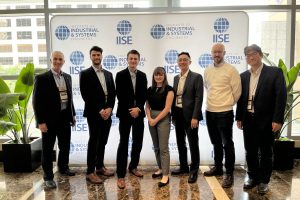
June 13, 2023
Industrial Engineering students present at national conference
Industrial Engineering students and faculty traveled to New Orleans last month to present research projects at the Institute of Industrial and Systems Engineers (IISE) annual conference.